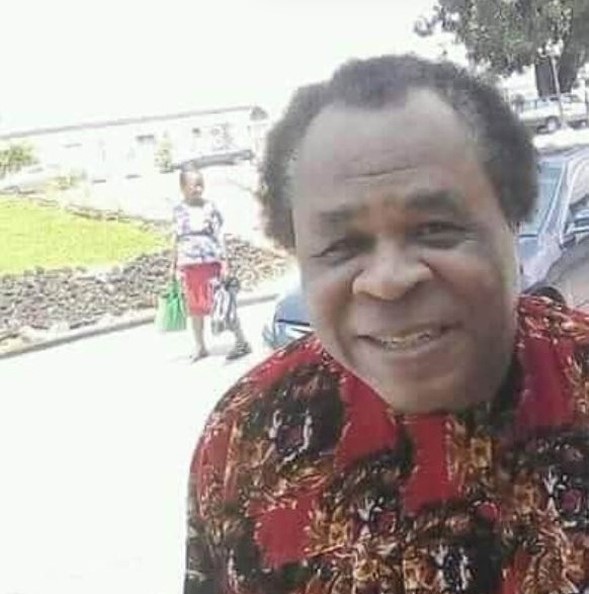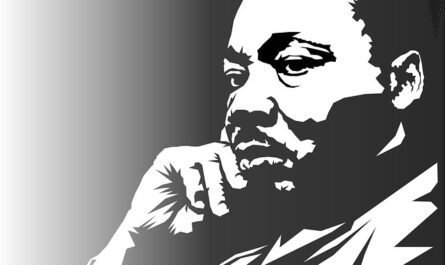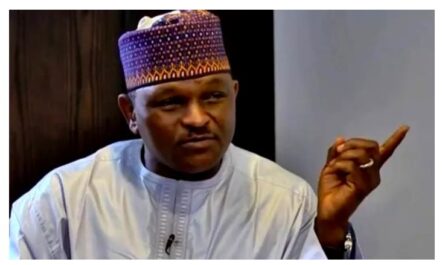Disputing that the Igbo tribe has been marginalized politically and economically in Nigeria, would be an impossible task because there are several examples to prove it. For example, in 2023, the presidential elections are due and by virtue of rotation, it is time for an Igbo presidency. Alas, not one of the candidates from the two largest parties that have been in power since the democratic dispensation of 1999 has presented an Igbo candidate. When questioned, they have not only unapologetically presented illogical reasons why the presidency must no longer be rotated.
One politician openly said that in the game of politics, the Igbos are at the bottom of the ladder and uncertain of their calculations. He probably speaks the mind of several others who remain silent but invalidate the rights of the Igbos by their actions within the national political sphere.
Apparent Marginalisation After Civil War
Following the Nigerian Civil War, Igbos were forced to learn new loyalties and accept that Biafra was gone. Though the famous “No victor, no vanquished” statement was announced by the then Head of State, General Yakubu Gowon, the reality however was that the heavy implied and even outright sanctions imposed on the Igbos, left the tribe and the region known as today’s Sout East, at a huge disadvantage meant for only the apparently vanquished.
Notable examples include the takeover of the erstwhile mission schools by the government dipped the quality of education. Again, most Igbos who left their workplaces prior to the war, particularly in government institutions, were never reinstated back to duty and their positions were given to any other person with the major criteria of not being Igbo.
In the military and paramilitary, Igbos were not recruited for a very long time. Also, at the Nigerian Civil Service, Igbos were never considered for employment or re-admitted back regardless of their previous pristine academic qualifications or work experience.
Even in Commerce and Industry, Igbo-owned businesses plus residential properties were confiscated and never returned to the previous rightful owners. The cries for justice and asset recovery by affected Igbos were never addressed by the Nigerian government to date.
This economic sabotage is perceived to still linger in a new form of stifling Igbo businesses.
Economic Prowess Of The Igbos
The dispersal of the Igbos to different parts of Nigeria as well as to the world after the Nigerian civil war was probably one of the single most important events that exposed the economic prowess of the Igbo tribe. They have settled in almost every area of the nation building frontiers of brotherhood and building businesses that contribute to the economic development of their host area.
Notably huge Igbo business brands like Ekene Dili Chukwu Transport, Roban Stores, Emzor, Innoson, Coscharis, and countless more have risen from the post-Biafran war £20 stipend. Some of these businesses seem to not enjoy the goodwill and protection their competitors do making some wonder if it is deliberately instigated for tribalistic reasons.
Let us examine two of these.
Ibeto Cement
At first, the Ibeto Group, established by Dr. Cletus Ibeto OON CON, an Igbo business mogul, started off importing and trading bagged cement brand, Portland Cement in 1997.
In addition to this Ibeto Cement also owns 60 percent controlling interest in NIGERCEM, the very first cement company in Nigeria established in 1957 at Nkalagu, a town in the present-day Ebonyi where huge quantities of limestone can be found.
When the Nigerian government banned the importation of cement in bags, Ibeto Cement changed its business strategy to bulk importation and bagging of cement. They established a bagging terminal in Port Harcourt, Rivers state Nigeria which commenced operations in 2005. The ultra-modern bagging plant with four production lines bagging 50kg, 1,500kg, and bulk cement powder also has both flat storage and production capacity.
In 2012, the then Nigerian president, Olusegun Obasanjo implemented a backward integration policy giving licenses to selected companies like the Ibeto Group with proven investments in the manufacture of cement who own and operate land-based import terminals, to import cement with an aim to augment the short supply of the product in the country.
Around 2015, Dangote instigated the Cement Manufacturers Association of Nigeria (CMAN) to petition the presidency and alleged that Ibeto cement had continually engaged in unbridled importation of the commodity ignoring the mandate to foster local production as instituted by the government.
Reacting to this, the Obasanjo-led government not only revoked Ibeto Cement’s license but took a further move that many industry observers perceived as extremely punitive by completely shutting down the company’s bagging plant.
Empathy came from the subsequent presidency of the late President Umaru Yar’adua who not only upturned his predecessor’s decision but also approved for Ibeto Cement to import up to 1.5million metric tonnes of bulk cement per annum at 5 percent import duty and free VAT.
Once again, a petition was raised by Dangote Cement compelled the Cement Manufacturers Association of Nigeria (CMAN) to petition the presidency stating that Ibeto Cement was enjoying preferential importation waivers above other players in the industry who were compliant with government directives and paying statutory duties of 10 percent as well as 5 percent VAT.
In its response, the Federal Government of Nigeria described Dangote’s claims as baseless and anti-competitive whilst exhibiting a desire to control the entire country’s cement industry. The government also said that Dangote Cement was neither a party in the suit, a nominee, nor an agent of government agencies, and was not acting on the government’s behalf. It further stated that Dangote Cement did not have the statutory mandate of administering, managing, or enforcing tax compliance, therefore lacking the locus standi to commence or maintain the legal action and seek the reliefs it mentioned in the case.
One apparent fact was that the total import by Ibeto Cement did not account for up to 5% of the annual total supply of the product in the country. Hence, it was quite baseless to accuse the company of stifling market competition because its importation activities created a surplus of the products and its subsequent pricing a glut which created a drastic reduction in the average price nationwide.
Dangote and Lafarge companies are the two largest cement suppliers in Nigeria as of 2022. The move by Dangote to challenge and eventually bring the operations of Ibeto Cement to a halt has been seen as not just vindictive by some independent economic observers but also hypocritical. This is because the Chairman of Dangote Group as a whole is largely perceived as a monopolistic company leveraging its chairman, Aliko Dangote’s relationship with the people at the highest corridors of power to dominate not just in the cement industry but in other areas like FMCG i.e. Fast Moving Consumer Goods plus Oil and Gas.
The infamous Wikileaks report of 2005 described Aliko as “ using connections in a corrupt political economy to tilt the playing field in his favor and sideline potential competition.” and also having had “success blocking trade and investment that might compete with his enterprises.” then went further to coin the nickname “beggar-thy-countryman”.
In stark contrast, the Ibeto group operates a different model of economic empowerment and has a history of fair play across its business dealings in not just cement but also in automotive parts, petrochemicals, hospitality, properties, banking & finance plus oil & gas.
Dr. Ezekiel Izuogu
In 1998, BBC’s correspondent in Lagos, Nigeria wrote a report on a new, all-African car called the Z600. Ninety percent of its parts were locally produced in Nigeria. It had a 1.8L four-cylinder engine that enabled it to reach speeds of 180 km per hour. At an estimated production cost of approximately $2,000, this vehicle was going to unarguably be the most affordable car in Africa and probably the world.
This car was the brainchild of Dr. Ezekiel Izuogu, a scientist, engineer, and inventor who lectured at the Federal Polytechnic, Nekede, Imo State. He had a dream to make affordable cars for the average man and worked on this dream for 14 years, using all his personal financial resources. His invention caught the eyes of not just the Nigerian government but governments around the world.
One remarkable feature of Izuogu’s vehicle was its revolutionary emagnetodynamics engine which meant that the car was self-sustainable and did not need a recharge of electricity, solar power, or fuel, and additionally could work for about 50 years.
The Nigerian government never fulfilled its promise to fund Izuogu’s much-needed research with the sum of N235 million naira required to finetune his invention and make it mass-produced in Naze, Imo State. But the greater tragedy was to come in 2006. Shortly after the government of South Africa indicated a keen interest in Izuogu’s invention and offered to enter an arrangement with him to produce the Z600, a total of 12 heavily armed gunmen invaded his factory at about 2 am in the morning and carted away crucial tools and documentation required to produce the car.
The items stolen included the locally produced timing wheel, camshaft, crankshaft, engine tappets, pistons, four pieces of engine block mounds, engine flywheel plus the rear and front mudguard moulds.
As if this wasn’t enough already, the robbers also stole the most significant intellectual property ie., the design history notebook and the design file labelled Z-MASS. This was the entire blueprint required to reconstruct and eventually mass-produce the automobile. An entire 14 years’ worth of extraordinary scientific work was wiped away clean and never to be seen to this day.
This “robbery” blatantly seemed like a malicious operation to erase the possibility of the Z600 ever coming into existence.
Before his death in 2020, the inventor said that his machine was being produced in other parts of the world including the United States and Pakistan and some of these productions were illegal.
Addressing Marginalisation In Nigeria
Understanding that social, economic, and political marginalization are a threat not just to the people or group of people who are less able to do things or access basic services or opportunities but to the wider host is an important step in addressing the issue.
Nigeria as a whole, and not just the Igbos suffer the consequences of relegating the needs and equitable participation of any group of people within the country.
Whether it is via inefficiency or malicious, subtle and overt actions systematically excluding or restraining the full participation of the Igbos in decision-making need to be addressed and resolved. Ignoring them or dismissing them as non-existent will only fuel agitation.




